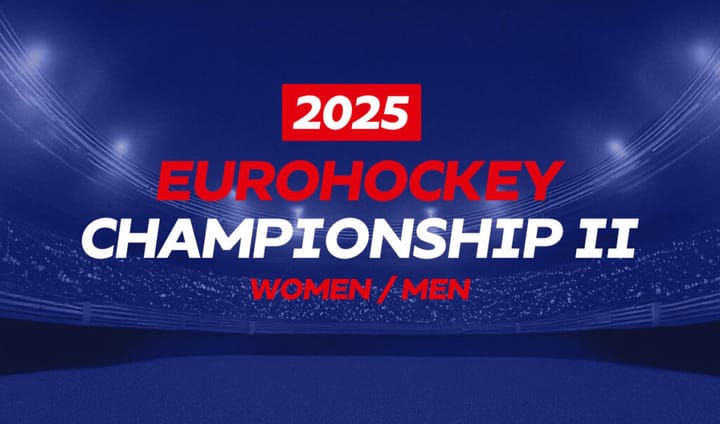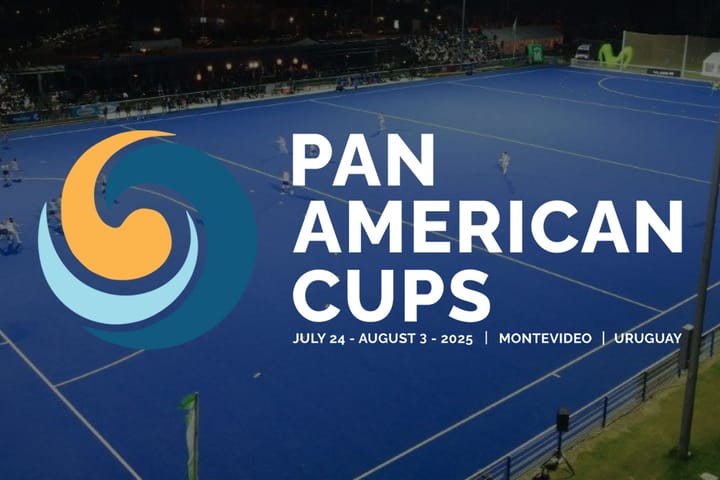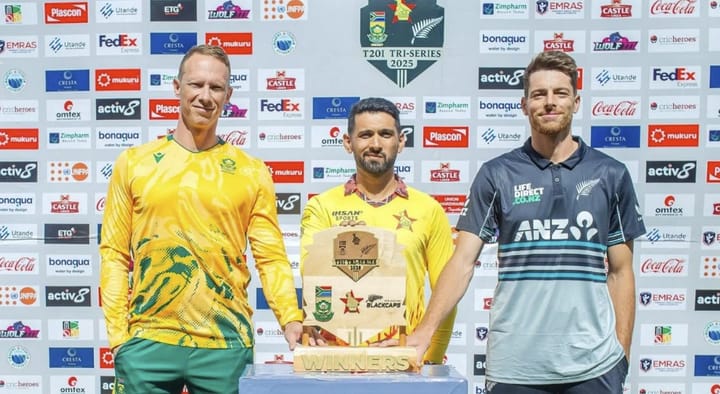How FIFA’s Global Football Development Program Is Shaping Emerging Nations
FIFA Forward 3.0 invests $2.25B in 211 nations! 🌱 From Rwanda's schools to Mongolia's Air Dome and India's grassroots, FIFA's program builds football's future. It's about transparency, talent, and bringing the FIFA World Cup dream closer for all.

For billions around the globe, football is more than just a game; it’s a passion, a cultural touchstone, and a vehicle for dreams. Yet, the vast disparities in resources between established footballing powerhouses and emerging nations have long created an uneven playing field. Enter FIFA’s ambitious Global Football Development Program, particularly its flagship FIFA Forward initiative. Designed to level up the sport worldwide, this program isn't just about financial aid; it's about building sustainable structures, nurturing talent, and realizing the universal potential of the beautiful game.
As a senior content writer and researcher for a modern digital sports media brand, I’ve witnessed the transformative power of targeted investment. From dusty pitches to state-of-the-art academies, FIFA’s commitment is reshaping the landscape of football in places where the passion has always burned bright, but the infrastructure lagged. This is a story of global ambition, tailored support, and the ongoing quest for transparency.
FIFA Forward 3.0: Unprecedented Investment for a Global Game
The roots of FIFA’s development efforts stretch back decades, but the launch of the FIFA Forward Development Programme in 2016 marked a significant shift. It ushered in a new era of sustainable and long-term investment, putting trust in member associations while empowering them with unprecedented levels of funding. Following the successful implementation of "FIFA Forward 1.0" and "FIFA Forward 2.0," the latest iteration, "FIFA Forward 3.0," commenced in January 2023.
Under FIFA Forward 3.0, a staggering USD 2.25 billion has been allocated for the 2023-2026 cycle to all 211 member associations, six confederations, and 13 zonal/regional associations. This substantial investment is a testament to FIFA’s commitment to reinvesting a vast majority of its revenues – notably from the immense success of events like the FIFA World Cup – directly back into the game.
Each member association, for instance, is entitled to a contribution of up to USD 8 million for the four-year cycle (2023-2026). This includes up to USD 1.25 million annually for operational costs (day-to-day activities, administration), and a crucial USD 3 million over the cycle specifically for tailored projects. These projects often focus on critical areas like football infrastructure (pitches, technical centers, headquarters), capacity building, competitions, and national team support. Additionally, associations with annual revenue under USD 4 million can receive up to USD 1 million yearly for travel and accommodation, and up to USD 200,000 over four years for equipment, ensuring those most in need receive extra assistance.
Case Studies: Dreams Taking Shape
The impact of FIFA Forward can be seen in tangible projects across continents:
Rwanda: Building from the Grassroots Up
In Rwanda, FIFA’s development efforts are highly visible. While the direct construction of a singular "new academy" specifically linked to a large FIFA Forward 3.0 project wasn't prominently detailed in the search results, the nation has significantly benefited from grassroots initiatives. In March 2023, Rwanda became the 50th country globally and 14th CAF member to implement FIFA’s highly successful Football for Schools (F4S) programme. Launched in Kigali – a symbolic "return to source" as the program was conceived there in 2018 – F4S aims to teach life skills and make football accessible to children by integrating it into the education system. Through this, thousands of footballs have been dispatched to schools, and coach educators trained, laying a vital foundation for talent identification and development at the youngest levels. This comprehensive approach ensures that the future stars of Rwandan football are not just trained in technique, but also in essential life competencies.
Mongolia: Conquering the Elements with Infrastructure
For a nation like Mongolia, with its famously harsh winters, playing football year-round is a significant challenge. FIFA Forward funding has directly addressed this. The Mongolian Football Federation (MFF) has utilized funds for crucial infrastructure upgrades at their National Team Training Centre. This includes:
- An eco-friendly pitch renovation at the MFF Football Centre, using cork instead of rubber as refilling material, aligning with FIFA’s "Green Card for the Planet" campaign (FIFA.com, Sept 2022). This was also the venue for the world's first 2022 FIFA World Cup Qatar™ qualifier.
- The completion of a FIFA Forward-funded Air Dome (Inside FIFA, April 2023). This massive, insulated structure now covers an artificial turf pitch, allowing players to train even when outside temperatures plummet to -45°C. This ensures continuous development for national teams and youth players, a critical factor in a climate where football activities used to cease for five months of the year.
These projects demonstrate how FIFA Forward adapts to specific national challenges, providing tailored solutions that have a direct, transformative impact on a country's ability to develop its football talent.
India: Laying Foundations for Future Success
For Indian football fans like myself, the dream of seeing the Blue Tigers on the FIFA World Cup stage burns bright. While qualification for FIFA World Cup 2026 proved challenging, FIFA Forward plays a crucial role in laying the long-term foundations. The All India Football Federation (AIFF) is a direct beneficiary of the program, utilizing funds to enhance various aspects of football development in the country.
This includes investments in:
- Infrastructure: Developing grassroots facilities, training centers, and improving existing pitches.
- Capacity Building: Funding for coach education, referee training, and administrative development within the AIFF.
- Competitions: Supporting the organization and expansion of national leagues and youth tournaments, which are vital for player pathways.
- Women's Football: Specific initiatives to boost the growth and professionalization of women's football in India, a key FIFA development pillar.
The AIFF's active engagement with FIFA Forward signifies a concerted effort to leverage global support for domestic growth. While India's journey to the World Cup is a marathon, not a sprint, the sustained investment through programs like FIFA Forward provides the necessary resources to develop players from a young age, improve coaching standards, and build the competitive structures that are essential for future qualification.
What’s Working and What’s Not: Audits and Transparency
One of the core principles of FIFA Forward 3.0 is "More Oversight," aiming to ensure all funds are used responsibly. This is a direct response to past criticisms surrounding financial transparency in football governance.
What’s Working:
- Independent Audits: FIFA engages globally recognized auditors to conduct independent central reviews of Forward funding to member associations. Every dollar invested is meant to be accounted for, and every project overseen to completion.
- Compliance Programme: FIFA has implemented a comprehensive Compliance Programme with a dedicated Compliance and Risk team. This includes policies against bribery, fraud, and conflict of interest, along with due diligence on relevant third parties.
- Tailored Plans: The program's emphasis on "tailor-made plans" ensures that funds address the specific needs of each member association, leading to more impactful and relevant projects.
- Increased Investment: The sheer scale of investment – USD 2.25 billion for 2023-2026, and USD 2.8 billion across the first two cycles (2016-2022) – has demonstrably led to new pitches, technical centers, and professionalized administrations globally.
What’s Not (Challenges & Areas for Continued Scrutiny): While FIFA emphasizes its commitment to transparency, the sheer volume of funds and the varying levels of governance in 211 member associations present ongoing challenges. Instances of alleged misuse of funds or lack of accountability in some national associations have historically surfaced. FIFA's own reports acknowledge the continuous need to "upgrade and improve the way our development activities are monitored, with greater scrutiny of spending and a detailed report on the results achieved." The success of these programs hinges not just on the allocation of funds, but on the rigorous enforcement of compliance measures and the consistent political will within member associations to utilize resources effectively and transparently for genuine football development.
What’s Next: A Sustainable Global Future
The FIFA Forward program is an evolving commitment. Looking ahead, the focus remains on continuing to build sustainable legacies for long-term talent development. Initiatives like the FIFA Talent Development Scheme (TDS), led by Arsène Wenger, aim to maximize each member association's potential by ensuring every talented player has a chance to be detected and developed, often through investment in academies.
As football continues its global expansion, propelled by events like the expanded FIFA World Cup 2026, programs like FIFA Forward will be critical. They represent FIFA’s promise to distribute the immense wealth generated by its premier tournaments back into the grassroots, ensuring that the next generation of players, coaches, and administrators from every corner of the world has the opportunity to participate and excel. The ultimate goal is a more competitive, inclusive, and truly global football landscape, where every emerging nation has a real chance to shine on the world stage.
Thank you for reading! If you’re passionate about sports and want timely updates, subscribe to our newsletter to never miss a story.
Disclaimer: We strive to publish verified and up-to-date information from official sources. If you spot any inaccuracies or would like to suggest corrections, please reach out to us directly [contact@chalokhelte.com]. We value and appreciate community feedback.


